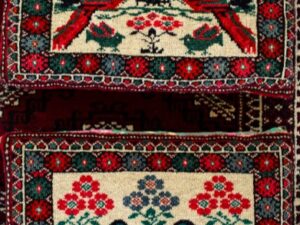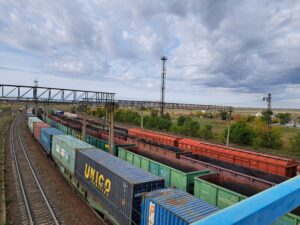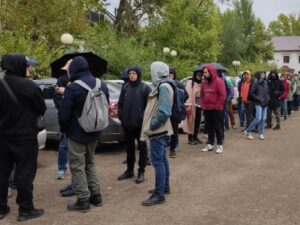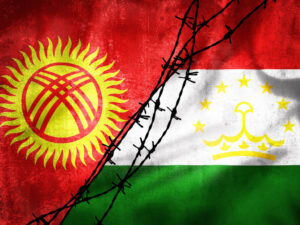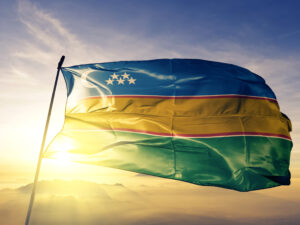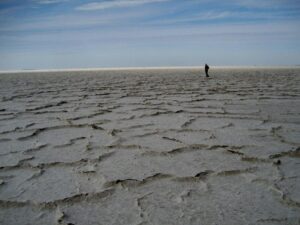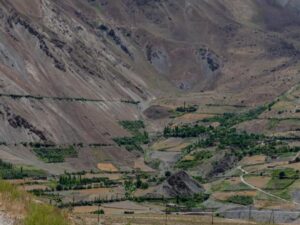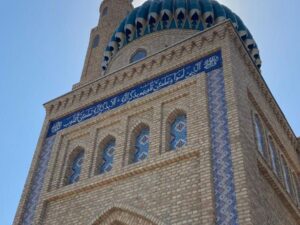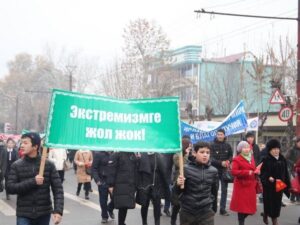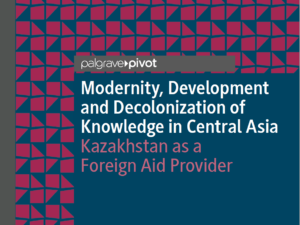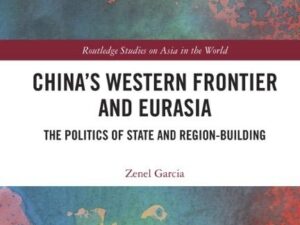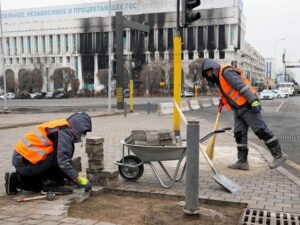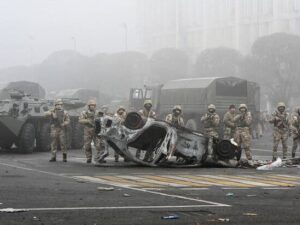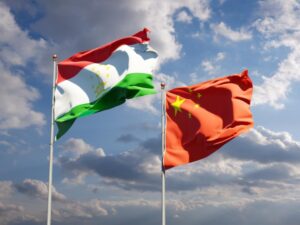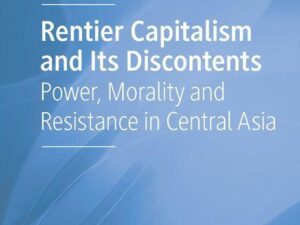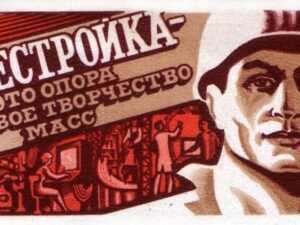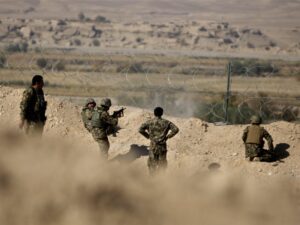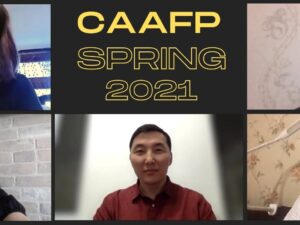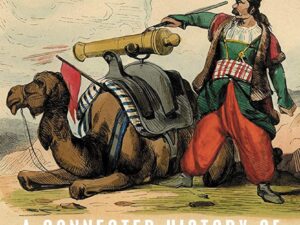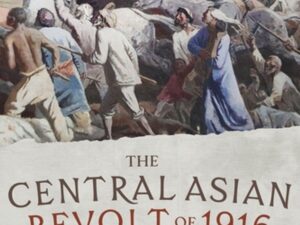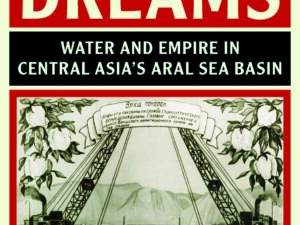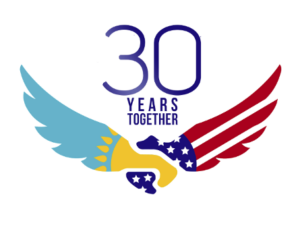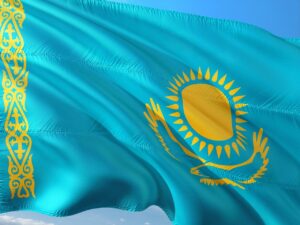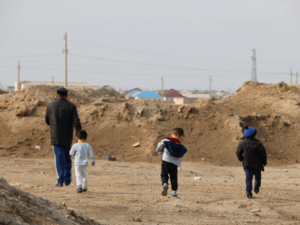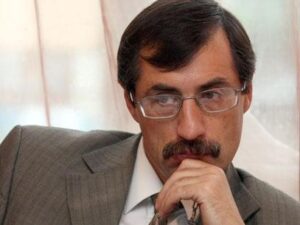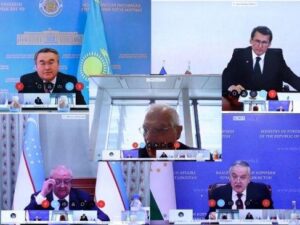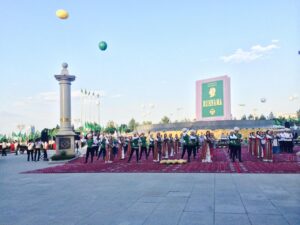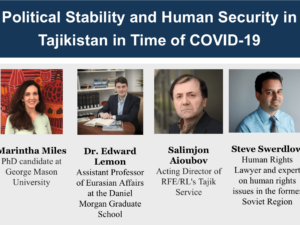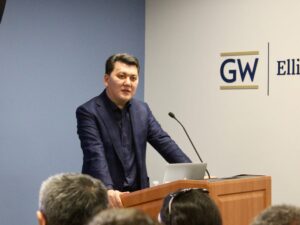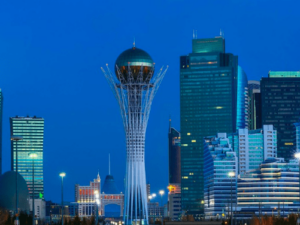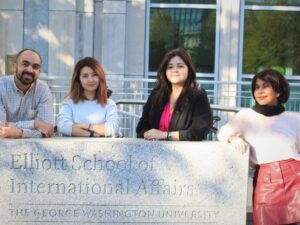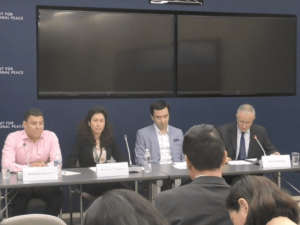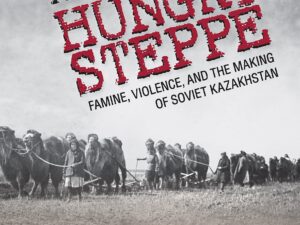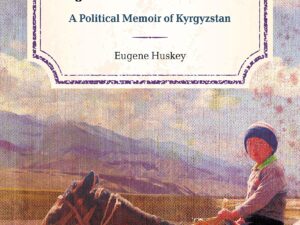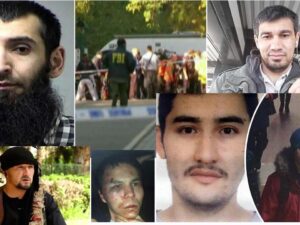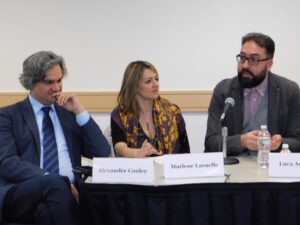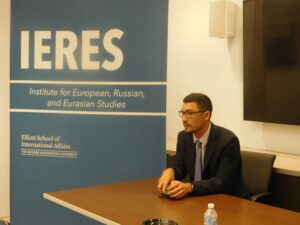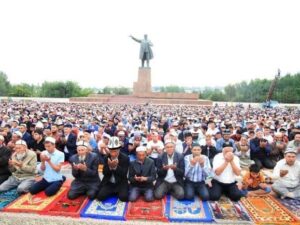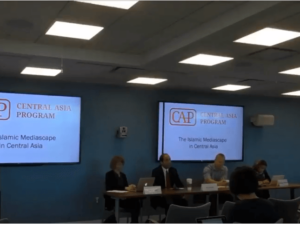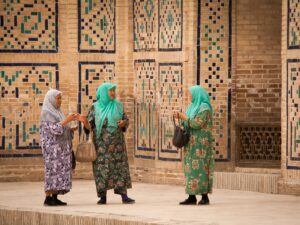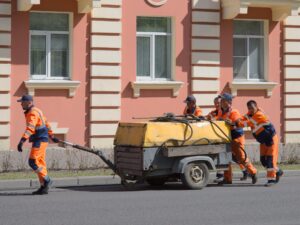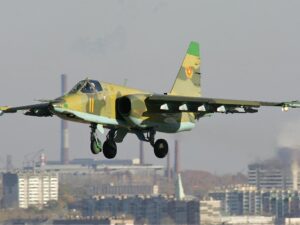
- This event has passed.
Ninth Fellows’ Seminar: Development Challenges and Evolving Identities in Central Asia and Azerbaijan
1 June, 2017 @ 2:00 PM - 6:00 PM
2:00pm. Introductory remarksMarlene Laruelle, Director, Central Asia Program
2:15-4:00pm. Panel 1. Identities, Ideologies and Religion in Flux
Zhar Zardykhan (KIMEP, Almaty)
Between Two Worlds: The Ambiguities of Kazakhstan’s Search for its New Identity
Kamal Gasimov (CAAF, Azerbaijan)
The Salafi Multimodal Engagement with Electronic Media in Azerbaijan
Alexandra Tsay (CAAF, Kazakhstan)
Contemporary Art as a Public Sphere in Kazakhstan
Rafael Sattarov (CAAF, Uzbekistan)
“Spirituality and Enlightenment’”: State-backed Ideological Policy in Uzbekistan
Discussion
4:00-4:15pm. Coffee break
4:15-5:30pm. Panel 2. Social Development and Inequalities
Daniyar Kussainov (CAAF, Kazakhstan)
Inequality in Kazakhstan’s Secondary Education: Towards a Fragmented Society?
Dinara Nurusheva (CAAF, Kazakhstan)
In Search of Better Performance: Local Governance Challenges in a Kazakh Mining Town
Nazik Imanbekova (CAAF, Kyrgyzstan)
Strengthening the Participation of Local Communities in the Mining Sector: The case of Talas, Kyrgyzstan
Discussion
5:30pm. Reception
 Kamal Gasimov is a researcher in the field of Islamic Studies from Azerbaijan. He holds B.A. and M.A. degrees in Oriental Studies (Persian language and literature) from Baku State University (Azerbaijan). He has also studied Arabic language and literature at Kuwait University. His research has mainly concentrated on Islamic social movements, particularly quietist Salafi trends and their interaction with Islamists or jihadis; the transnationalization of Salafism and its connection with local (post-Soviet) actors; and Islamic legal theories. His interests lie primarily in contemporary Islamic groups in Syria, Iraq and the Gulf countries. During his fellowship, Kamal will consider transformations in the Islamic landscape of Azerbaijan.
Kamal Gasimov is a researcher in the field of Islamic Studies from Azerbaijan. He holds B.A. and M.A. degrees in Oriental Studies (Persian language and literature) from Baku State University (Azerbaijan). He has also studied Arabic language and literature at Kuwait University. His research has mainly concentrated on Islamic social movements, particularly quietist Salafi trends and their interaction with Islamists or jihadis; the transnationalization of Salafism and its connection with local (post-Soviet) actors; and Islamic legal theories. His interests lie primarily in contemporary Islamic groups in Syria, Iraq and the Gulf countries. During his fellowship, Kamal will consider transformations in the Islamic landscape of Azerbaijan.
 Nazik Imanbekova is a transparency and open government activist from Kyrgyzstan, who has worked at various organizations from local NGOs (Public Foundation ElNaz, EITI public reception, EITI NGO Consortium, Human Development Center Tree of Life) to IGOs (UNDP). As the head of EITI public reception in Talas region, she developed a dialogue platform, which the national government to adopted and led to the establishment of periodical meetings with local communities. She holds a Specialist Diploma with Honors in Economics from the Academy of Management under the President of the Kyrgyz Republic. During her fellowship, she will study the impact of mining contracts and government’s policy. The research will focus on the effects of current policies and contract clauses on local communities around the mining value chain in Kyrgyzstan.
Nazik Imanbekova is a transparency and open government activist from Kyrgyzstan, who has worked at various organizations from local NGOs (Public Foundation ElNaz, EITI public reception, EITI NGO Consortium, Human Development Center Tree of Life) to IGOs (UNDP). As the head of EITI public reception in Talas region, she developed a dialogue platform, which the national government to adopted and led to the establishment of periodical meetings with local communities. She holds a Specialist Diploma with Honors in Economics from the Academy of Management under the President of the Kyrgyz Republic. During her fellowship, she will study the impact of mining contracts and government’s policy. The research will focus on the effects of current policies and contract clauses on local communities around the mining value chain in Kyrgyzstan.
 Daniyar Kussainov currently works as a program assistant for the International Organization for Migration (IOM) Sub-regional Coordination Office for Central Asia and was a research fellow at the Soros-Kazakhstan Foundation Public Policy Initiative in 2014. Daniyar holds an MA degree in Politics and Security (Central Asia) from the OSCE Academy in Bishkek. His professional and academic interests include migration, education, and elections. Prior to joining the IOM Office in Almaty, he worked for local and international NGOs, OSCE/ODIHR Election Observation Missions, OSCE Secretariat and the World Bank. During his fellowship, Daniyar will study state educational policies and their potential effects on rising socio-economic inequality in Kazakhstan.
Daniyar Kussainov currently works as a program assistant for the International Organization for Migration (IOM) Sub-regional Coordination Office for Central Asia and was a research fellow at the Soros-Kazakhstan Foundation Public Policy Initiative in 2014. Daniyar holds an MA degree in Politics and Security (Central Asia) from the OSCE Academy in Bishkek. His professional and academic interests include migration, education, and elections. Prior to joining the IOM Office in Almaty, he worked for local and international NGOs, OSCE/ODIHR Election Observation Missions, OSCE Secretariat and the World Bank. During his fellowship, Daniyar will study state educational policies and their potential effects on rising socio-economic inequality in Kazakhstan.
 Dinara Nurusheva is co-founder of PaperLab Research Group and was a research fellow at the Soros Foundation Kazakhstan Public Policy Initiative in 2014. She graduated from Abylai Khan Kazakh University of International Relations and World Languages with a Bachelor in International Relations. She obtained her master’s degree in Global Political Economy at City University London through the Bolashak scholarship. She has experience working in the analytical department at Nazarbayev Centre in Astana and the Center for Humanitarian and Political Trends in Almaty. Her research interests include institutionalism and the social and economic development of Kazakhstan’s regions. During her fellowship, Dinara will study the social and economic implications of living in a mining city, focusing on Tekeli, a city in Almaty oblast.
Dinara Nurusheva is co-founder of PaperLab Research Group and was a research fellow at the Soros Foundation Kazakhstan Public Policy Initiative in 2014. She graduated from Abylai Khan Kazakh University of International Relations and World Languages with a Bachelor in International Relations. She obtained her master’s degree in Global Political Economy at City University London through the Bolashak scholarship. She has experience working in the analytical department at Nazarbayev Centre in Astana and the Center for Humanitarian and Political Trends in Almaty. Her research interests include institutionalism and the social and economic development of Kazakhstan’s regions. During her fellowship, Dinara will study the social and economic implications of living in a mining city, focusing on Tekeli, a city in Almaty oblast.
 Rafael Sattarov is a political analyst. He is a graduate of the University of World Economy and Diplomacy in Tashkent, Uzbekistan. He has a Master’s degree from the National Research University Higher School of Economics in Moscow. He is a columnist of several editions in Russia and Kazakhstan and has edited articles on economics and politics in Forbes Russia, Lenta.ru, and Russia Beyond the Headlines. He was a delegate of the Young Educational Leaders Program of NATO. His research interests include reforms of the socio-political and economic systems in the post-Soviet space, U.S.-Russia relations after the end of the Cold War, U.S. policy in Central Asia, international relations in Eurasia and the geopolitics of Central Asia and the Caucasus. During his fellowship, Rafael will look into the rise of conservative values and so-called spirituality in Uzbekistan and their relevance in modern-day Uzbek society.
Rafael Sattarov is a political analyst. He is a graduate of the University of World Economy and Diplomacy in Tashkent, Uzbekistan. He has a Master’s degree from the National Research University Higher School of Economics in Moscow. He is a columnist of several editions in Russia and Kazakhstan and has edited articles on economics and politics in Forbes Russia, Lenta.ru, and Russia Beyond the Headlines. He was a delegate of the Young Educational Leaders Program of NATO. His research interests include reforms of the socio-political and economic systems in the post-Soviet space, U.S.-Russia relations after the end of the Cold War, U.S. policy in Central Asia, international relations in Eurasia and the geopolitics of Central Asia and the Caucasus. During his fellowship, Rafael will look into the rise of conservative values and so-called spirituality in Uzbekistan and their relevance in modern-day Uzbek society.
 Alexandra Tsay is an independent research fellow in cultural studies and an art curator based in Almaty, Kazakhstan. She is involved in PaperLab: Public Policy Research Laboratory and Open Mind. Previously, she worked as a Senior Lecturer at International Information Technologies University in Almaty. Alexandra is an alumni of University of Warwick (UK), where she earned an MA in International Cultural Policy and Management, and KIMEP University (Kazakhstan), where she earned a BA in International Journalism and Mass Communication. She was a research fellow at Public Policy Initiative Program of Soros Foundation Kazakhstan in 2014-2015. During her fellowship, Alexandra will explore the cultural public sphere in Kazakhstan. Her hypothesis is that the cultural public sphere and artistic expressions are becoming an important arena for public debates, criticism and inventions of counter-discourses in societies with restricted freedom of the press and a shrinking political public sphere.
Alexandra Tsay is an independent research fellow in cultural studies and an art curator based in Almaty, Kazakhstan. She is involved in PaperLab: Public Policy Research Laboratory and Open Mind. Previously, she worked as a Senior Lecturer at International Information Technologies University in Almaty. Alexandra is an alumni of University of Warwick (UK), where she earned an MA in International Cultural Policy and Management, and KIMEP University (Kazakhstan), where she earned a BA in International Journalism and Mass Communication. She was a research fellow at Public Policy Initiative Program of Soros Foundation Kazakhstan in 2014-2015. During her fellowship, Alexandra will explore the cultural public sphere in Kazakhstan. Her hypothesis is that the cultural public sphere and artistic expressions are becoming an important arena for public debates, criticism and inventions of counter-discourses in societies with restricted freedom of the press and a shrinking political public sphere.
 Zhar Zardykhan is an Assistant Professor of International Relations and Regional Studies at KIMEP University (Almaty, Kazakhstan) and the Deputy Director of the Central Asian Studies Center (CASC). In 2007, Dr. Zardykhan completed his Doctoral dissertation on Pan-Islamic and Pan-Turkic appeals and propaganda in Ottoman-Russian confrontation during the First World War, with a special focus on the Muslim population of Central Asia and the Caucasus. He has been a Visiting Doctoral Fellow at the Max Planck Institute for Social Anthropology, where he carried out a research project on the trans-ethnic relationship between members of supra-ethnic clans in Central Asia. His primary research interests include Eurasian history, ethnic and religious conflicts, nationalism, minorities, and identity formation, and he has published in a number of prominent journals, including Middle Eastern Studies, Asian Ethnicity and Central Asian Survey. He is fluent in several European, Middle Eastern and Inner Asian languages.
Zhar Zardykhan is an Assistant Professor of International Relations and Regional Studies at KIMEP University (Almaty, Kazakhstan) and the Deputy Director of the Central Asian Studies Center (CASC). In 2007, Dr. Zardykhan completed his Doctoral dissertation on Pan-Islamic and Pan-Turkic appeals and propaganda in Ottoman-Russian confrontation during the First World War, with a special focus on the Muslim population of Central Asia and the Caucasus. He has been a Visiting Doctoral Fellow at the Max Planck Institute for Social Anthropology, where he carried out a research project on the trans-ethnic relationship between members of supra-ethnic clans in Central Asia. His primary research interests include Eurasian history, ethnic and religious conflicts, nationalism, minorities, and identity formation, and he has published in a number of prominent journals, including Middle Eastern Studies, Asian Ethnicity and Central Asian Survey. He is fluent in several European, Middle Eastern and Inner Asian languages.



